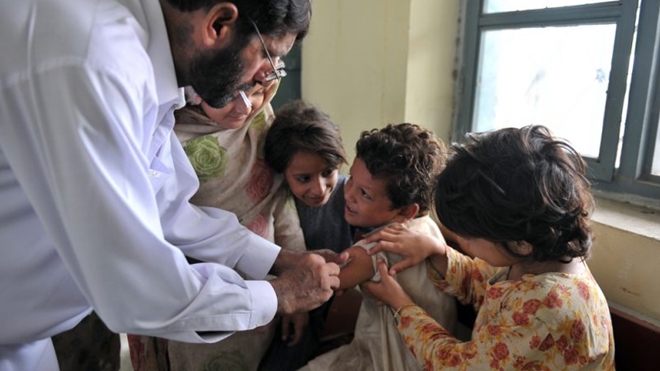Vaccines, tests, treatment should be patent-free: Oxfam
Vaccinating the poorest half of humanity – 3.7 billion people - against coronavirus could cost less than the ten biggest pharmaceutical companies make in four months, Oxfam said o
The agency is urging governments and pharmaceutical companies to guarantee that vaccines, tests, and treatments will be patent-free and equitably distributed to all nations and people, ahead of the World Health Assembly next week. The virtual meeting on Monday 18 May will be attended by health ministers from 194 countries.
The Gates Foundation has estimated that the cost of procuring and delivering a safe and effective vaccine to the world’s poorest people is $25 billion. Last year the top ten pharmaceutical companies made $89 billion in profits – an average of just under $30 billion every four months.
 |
| The EU has proposed the voluntary pooling of patents for coronavirus vaccines, treatments, and tests in their draft resolution for the World Health Assembly. Shutterstock |
The EU has proposed the voluntary pooling of patents for coronavirus vaccines, treatments, and tests in their draft resolution for the World Health Assembly. If made mandatory and worldwide, this would ensure that all countries could produce, or import low cost versions, of any available vaccines, treatments, and tests.
However, leaked documents reveal that there is an attempt to delete references to pooled patents and insert strong language on respecting the patents of the pharmaceutical industry. This would give pharmaceutical companies exclusive rights to produce, and set prices for, any vaccines, treatments and tests they develop – even if taxpayer money has been used to fund their research and development.
Jose Maria Vera, Oxfam International Interim Executive Director said: “Providing a vaccine to 3.7 billion people could cost less than what the ten biggest pharmaceutical companies make in four months. Anything less than guaranteeing that a vaccine is made available free of charge to all people would be obscene.
“Vaccines, tests and treatments should be distributed according to need, not auctioned off to the highest bidder. We need safe, patent-free vaccines, treatments and tests that can be mass produced worldwide, and a clear and fair plan for how they will be distributed.”
Once vaccines or treatments are developed, there is also a high risk that rich and powerful governments will outbid poorer nations and force their way to the front of the queue, as they did in the scramble for other essential medical supplies such as personal protective equipment and oxygen.
In March, drug manufacturer Gilead moved to extend the monopoly on a potential treatment for the virus, and only withdrew it after a public outcry. Gilead has now donated a significant portion of its current supply of remdesivir to the US government, but news reports suggest the company could make significant profits from subsequent production. Some Wall Street analysts expect Gilead to charge more than $4,000 per patient for the drug, even though the cost of remdesivir can be as low as $9 per patient.
Many poor countries are unable to access essential vaccines and medicines due to patent rules which give pharmaceutical companies monopoly rights and the power to set prices well above what they can afford. Pneumonia is the biggest killer of children under the age of five, with 2,000 children dying every day. For over a decade, millions of children have not had access to patented pneumonia vaccines manufactured by Pfizer and GlaxoSmithKline due to its high cost. After years of campaigning by Médecins San Frontieres, both companies reduced their prices in 2016, but only for the very poorest countries, leaving millions of children still without access to their vaccine.

